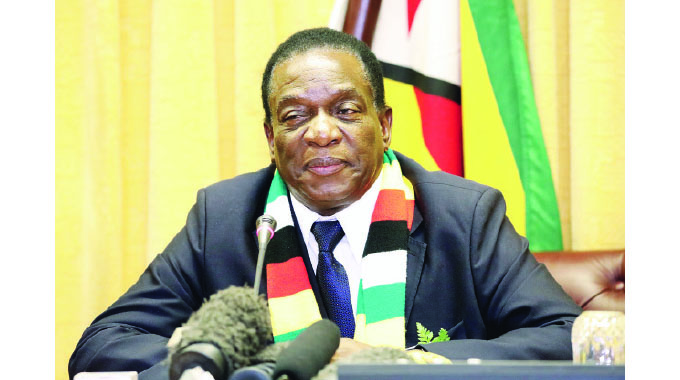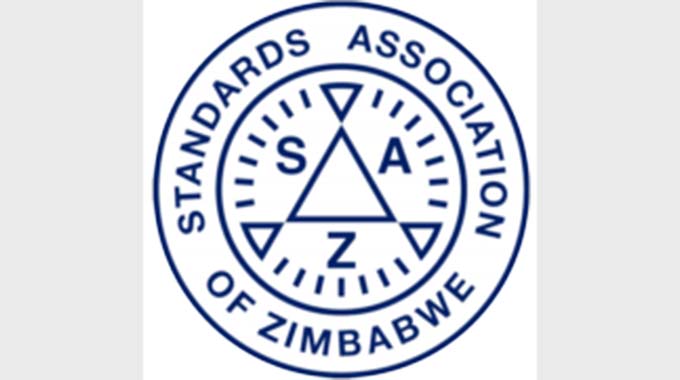Of leadership vacuum, Smith’s legacy and desperation

Nobleman Runyanga
Correspondent
For the past two weeks, the social media has been abuzz with users exchanging views over a 31 May 2022 tweet posted by a CCC activist, Lisah Ncube who praised the late Rhodesian leader, Ian Smith as a way of criticising President Mnangagwa, ZANU PF and Government.
Ncube posted that “Ian Smith was not perfect, but so far he is the best leader Zimbabwe has ever had. We are still using his roads, his dams, his trains, basically everything except (the) Joina City building and (the) Mbuya Nehanda statue.” She praised the late white racist leader as having “set a high bar.”
Nine days after the post, Ncube added more lies. She posted a 1970 image of Samora Machel Avenue in central Harare with the shameless claim that no new buildings had been put up along this thoroughfare since Smith’s rule. She captioned the picture with the message: “This is Jameson Avenue, Salisbury, in year 1970. A person who died in 1971, if they resurrect and walked in Harare, they won’t get lost. There is no development whatsoever. That person will find their way home without asking (for) any directions. That’s how useless ZANU PF is.”
Ncube’s blatant lies
Zimbabweans who are familiar with Harare know that over a dozen buildings were constructed along Samora Machel Avenue after independence.
These include the Rainbow Towers and Conference Centre, the ZANU PF national headquarters, the VW Showroom, Corner House, the Trek service station opposite it, Megawatt House, Pegasus House, Century Towers and Trust Towers. Other post-independence buildings on the same street include Karigamombe Centre, the Reserve Bank of Zimbabwe (RBZ) building and Mgandane Dlodlo Building (formerly the New Government Composite Office Complex).
What would one say of the new multi-storey furniture retail buildings being put up along the same street between Simon Muzenda and Seventh Streets? The NCR building, which is located at the corner of Emmerson Dambudzo Mnangagwa (formerly Enterprise) Road and Samora Machel Avenue is another product of the post-independence projects boom. This building craze in Harare was only checked by the evil sanctions imposed by the West resulting in some building projects such as the Joina City taking 10 years to complete.
It is evident that Ncube’s tweets were driven by mere malice against President Mnangagwa, ZANU PF and Government. The overwhelming support that Ncube’s controversial posts elicited among most opposition CCC members and supporters especially from the diaspora was also underpinned by the wish to depict ZANU PF as having failed to run Zimbabwe.
In their warped minds, it was better to put their reputations at stake by believing and amplifying Ncube’s lies than to acknowledge the massive development which ZANU PF has championed over the past four decades despite over two decades of the strangling effect of sanctions. But more about the opposition and detractors’ twisted minds later.
Nothing justifies praising and worshipping Smith
For people who never experienced the rule of Smith and his predecessors first-hand, the colonial regime was paradisical when compared to the ZANU PF. This is because they were never forced to work for a colonial government for no pay for failing to raise oppressive taxes such as hut taxes. The Smith regime infrastructure which they praised was built on black slave-like labour. They never experienced being forced to part with one’s cattle because a foreign colonial power limits the number of cattle one is supposed to keep.
Ncube and other like-minded people never lived under the colonial rule which limited people from pursuing studies in fields of their choices because of the bottle neck system.
For example, at independence there was a total of 1 235 994 pupils in primary schools, 74 321 pupils in secondary schools and only 2 240 students at the University of Zimbabwe.
It is evident that less than 10 percent of primary school children proceeded to secondary school because Smith’s colonial regime deliberately built very few secondary schools to ensure that most blacks ended up as part of a large pool of uneducated labour force for whites’ farms and enterprises.
The only few, who managed to get some secondary education, did so mainly at mission schools. Even the mission schools were not affordable for everyone given the tough rural economy under the colonial rule. Zimbabwe now has 2 980 secondary schools.
The bottleneck system also limited the number of students who could proceed to university as the country only had one university.
Fast forward to 2022, Zimbabwe has 24 universities comprising 14 public ones and 10 which are owned by private organisations such as churches. The Smith regime did not limit the number of universities due to lack of financial resources but because of its regime’s hardness of heart that regarded blacks as lesser human beings.
Smith and other whites’ evil attitude towards black Zimbabweans did not only manifest itself in the education sector. The colonial masters even deprived blacks of sufficient quality land in their own country. This saw most blacks being moved from prime land to rocky areas and largely unproductive land to accommodate white-owned farms.
This cruel practice was underpinned by segregational laws such as the Land Apportionment Act and the Land Tenure Act. Until the 2000 Land Reform Programme, about 4 000 white former farmers owned most of the country’s prime agricultural land 20 years into independence. The unbalanced land ownership between blacks and whites were created by colonialists like Smith, whom Ncube and other CCC members are glorifying.
Fed up with Smith and his predecessors’ racist ways, Zimbabweans organised themselves and took up arms to liberate their country and regain control of their land and lives. Over 40 000 blacks, comprising guerrillas and ordinary citizens perished during the 14 years from 1966 to 1979 as the same regime sought to subdue blacks to perpetuate their rule.
This included raids in training camps located in neighbouring countries such as Freedom Camp in Zambia and Nyadzonya and Chimoio in Mozambique, where they heartlessly bombed guerrillas, trainers and others who were yet to receive training.
Those who survived the bombing would be finished off using rifles. Only Zimbabweans who do not have an appreciation of their country’s history would not only shamelessly express adoration for Smith, but defend his evil and racist rule as well.
The guerrillas were training to fight for a just society where blacks would need licences to drink alcohol in their country. They were fighting for an equitable society where citizens would freely walk on spaces in their country such as the First Street Mall in Harare without being harassed by colonial police for breaking one of the racist Rhodesian laws.
In independent Zimbabwe, any citizen has a Constitutionally-guaranteed right to support a political party of their choice, but supporting Smith and what he stood for in the name of fighting President Mnangagwa and ZANU PF is fundamentally wrong.
Paucity of ideological direction
The way CCC members latched onto Ncube’s Smith tweets exposed something wrong about their party and its leadership. It showed that they were desperate for something meaningful which they can refer to as their party’s projects, programmes and achievements when they interact with members of other political parties and other Zimbabweans.
The CCC and its previous variants, the MDC-T and the MDC Alliance, have been in charge of Zimbabwe’s urban areas for the past 22 years. The successive MDC councils’ tenures have been characterised by deteriorating service and infrastructure, with the current term under CCC leader, Nelson Chamisa being the worst. In view of this, CCC members’ support for Smith was a symptom of political party members who are desperate for some kind of a positive track record to which they would have boasting rights by being members of the opposition outfit.
CCC members’ pro-Smith social media support exposed their party’s lack of ideological direction. By his own admission, Chamisa told his party members during a rally address at Zimbabwe Grounds in Highfield on 20 February 2022 that his party had no ideology. The opposition also does not have a constitution.
Neither does it have a substantive leadership or party structure except for Chamisa’s position. The rest are serving in an interim capacity nearly half a year into the life of the party. Come to think of it, it is not the party members’ fault. They are led by someone with a very serious deficit in leadership qualities.
To some CCC members, praising Smith and his cruel legacy was a way of decampaigning President Mnangagwa and ZANU PF ahead of next year’s polls in a desperate and misplaced hope of wooing some members of the electorate to their party, but the stunt reflected negatively more on Chamisa and CCC than on President Mnangagwa.
Nothing is as embarrassing for a political party leader as seeing his members visiting graves of the country’s former colonial masters in search of something tangible to hold onto as a record of achievement because their own does not have any.
Nothing is as embarrassing for a party leader as members of one’s own party unwittingly exposing the leadership vacuum in an organisation despite an incumbent being in place.
Full story on: www.herald.co.zw
It is humiliating when one’s own party members desperately dig up a reviled colonialist’s history in search of anything to use to fill up the leadership vacuum in their political organisation.
It was completely lost on the pitiable CCC members that 2023 is not about President Mnangagwa and ZANU PF against Smith. ZANU PF and its leadership finished with Smith over 43 years ago. ZANU PF has no illusion about who it is going to face in the ballot box next year. The party knows that it will be contending with the United States of America (USA), the United Kingdom (UK) and other global neo-colonial powers fronted by its local running dogs led by Chamisa and the CCC.
ZANU PF is fully prepared for the West’s puppets in next year’s plebiscite.
ZANU PF members and other Zimbabweans know what they want. They know who between ZANU PF and the CCC stands with and for the people. State power is not obtained by worshipping Smith and praising his legacy.
It does not come through placing oneself under Western imperial powers. Power is earned from the electorate. Those who think that a long-dead Smith is an election trump card are trying to foist on the people the very enemy the masses fought for 14 years to rid themselves of. Any wonder why electoral victory has eluded the opposition for 22 years.










Comments